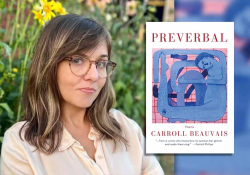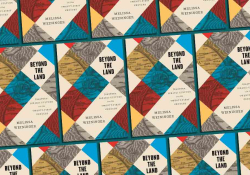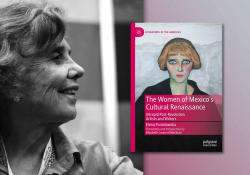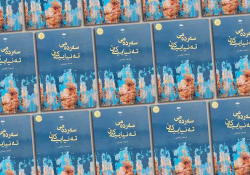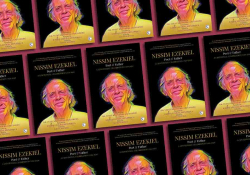Stitches That Bind: Oscar Hokeah’s Calling for a Blanket Dance
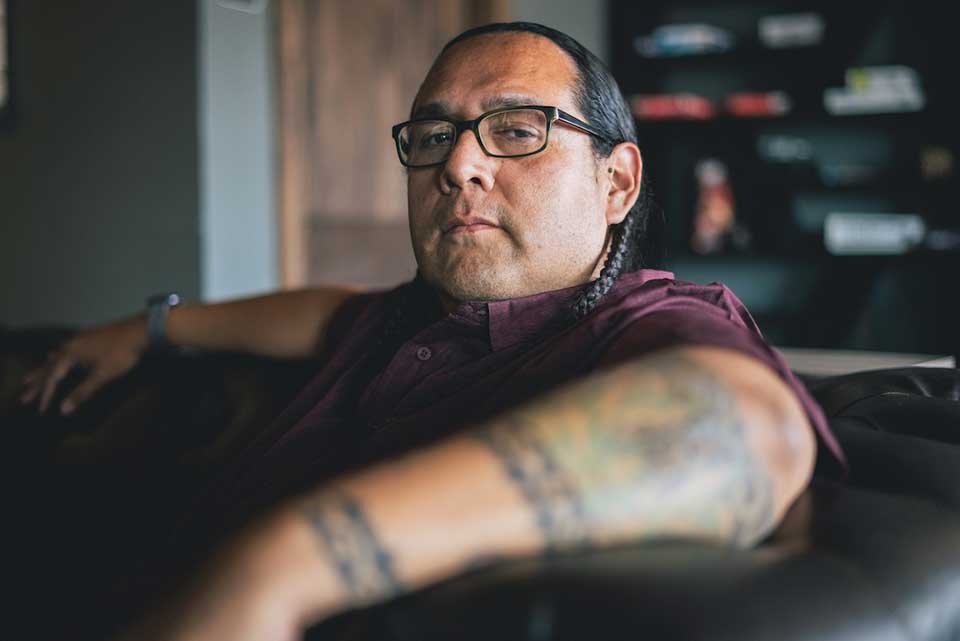
 Oscar Hokeah’s Calling for a Blanket Dance (Algonquin, 2022) begins with a family tree. Names are stitched together, threading out four generations of a family. The only name in bold font is Ever Geimausaddle, a Mexican and Kiowa-Cherokee man whose life is the focal point of the novel. However, his story is not told by him but through peripheral narrators—relatives who watch him grow up over decades, each recounting a pivotal moment of his life. Understanding the struggle to survive in a world set against them, Ever’s family teaches him how to be resilient by keeping their culture alive. Through every family member’s story, Calling for a Blanket Dance provides evidence that it is our community, those who remind us of who we are and where we come from, that saves us.
Oscar Hokeah’s Calling for a Blanket Dance (Algonquin, 2022) begins with a family tree. Names are stitched together, threading out four generations of a family. The only name in bold font is Ever Geimausaddle, a Mexican and Kiowa-Cherokee man whose life is the focal point of the novel. However, his story is not told by him but through peripheral narrators—relatives who watch him grow up over decades, each recounting a pivotal moment of his life. Understanding the struggle to survive in a world set against them, Ever’s family teaches him how to be resilient by keeping their culture alive. Through every family member’s story, Calling for a Blanket Dance provides evidence that it is our community, those who remind us of who we are and where we come from, that saves us.
Hokeah’s debut novel, which just last week was longlisted for the PEN America 2023 Literary Awards, proves the impact of generational resilience—what it means to pass down knowledge, tradition, and values. Through his family’s unconditional support, Ever becomes a man who “want[s] to be a positive influence on young people, the way his family had done for him.” He takes the wisdom his elders gave to him and passes it down to his children, who then pass it down themselves.
These moments feel so fluid and intimate that when we take in these stories, we hear the voices of our own family telling stories.
Through these stories about Ever, we learn just as much about his family as we do him in each chapter. We come to know them: his grandmother, who weaves quilts for all her grandchildren and great grandchildren; his sister, a single mother who puts herself through nursing school and still makes helping her family a priority; his dying grandfather, who spends the last months of his life bringing his grandsons to powwows and teaching them gourd dances; and all the rest. In telling their stories, the characters’ voices break from the confines of textual narratives, instead evoking the essence of oral storytelling transcribed to the page. Ever’s cousin, Quinton, tells his story in second person, transforming the chapter into a monologue, as though he were reminiscing with Ever. In her chapter, Ever’s sister, Sissy, bears vulnerability, taking the role of a reflective narrator when she says, “I wished I had done more.” These moments feel so fluid and intimate that when we take in these stories, we hear the voices of our own family telling stories. It feels like home.
Every chapter takes the form of a short story with a classic narrative structure. However, what sets the novel apart from a collection is that the characters refuse to stand alone, choosing to quilt their stories together. Calling for a Blanket Dance becomes a blanket, and, just like the stitches that bind them, it’s the love for community that holds the novel together.
Cincinnati, Ohio




